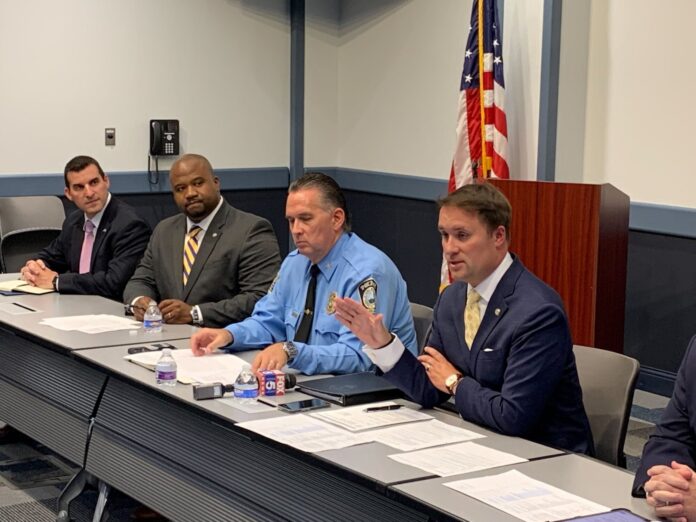Attorney General Jason Miyares and 35 other attorneys general sent a letter this week to Congressional leaders informing them of an issue with the National Human Trafficking Hotline and requesting their assistance to preserve the critical joint federal-state effort to end trafficking.
Since 2007, Polaris has operated the National Human Trafficking Hotline with funding authorized by Congress. Many states rely on the National Hotline to forward tips of suspected human trafficking to local law enforcement to arrest traffickers, safely recover victims and uncover evidence of trafficking rings and operations.
In recent months, it was discovered that Polaris only forwards tips to state law enforcement about adult victims in limited circumstances. This practice is contrary to what Polaris advertises, to what states and organizations have come to expect from this partnership, and, the attorneys general believe, to what Congress expects from its funding. Additionally, in some cases, states have discovered a delay of even several months before the Hotline shared tips with states.
“The recent discovery that certain human trafficking hotline tips are delayed is incredibly problematic. Human trafficking can affect anyone, anywhere, at any phase in life. That’s why the National Human Trafficking Hotline is so important and funded by Congress. To fight back against Human Trafficking, we need timely information. Congress should take immediate action to fix this critical resource,” said Attorney General Miyares.
Many states, federal agencies, and organizations have actively engaged the public in utilizing the Hotline for tips on trafficking to gather additional intelligence on trafficking operations, disrupt these criminal activities and recover victims. These newly discovered Polaris practices dramatically diminish the value of the Hotline to any of these efforts. Last year, Mississippi Attorney General Fitch met with Polaris CEO Catherine Chen to discuss this matter and last week Generals Fitch and Delaware Attorney General Jennings coordinated a meeting for state AGOs with Polaris to discuss this concern, but Polaris has indicated no intention to revise its policies.
In their letter to Congress, the attorneys general wrote, “It appears to us that the Hotline is not performing the services it is already funded to perform. Without changes to Polaris’s operating procedures, our state anti-trafficking initiatives gain little from participation in the National Hotline. As such, individual states may be forced to establish their own state hotlines, as some already have begun to do. A nationally-run hotline not only achieves cost-efficiencies, but also ensures a uniform approach and allows for the collection of cross-state information with regard to human trafficking tips.”
The attorneys general continued, “We urge Congress to ensure that Polaris makes changes to its current and reported planned tip reporting policies to begin forwarding tips regarding suspected human trafficking of adults, in a prompt manner, to the corresponding state’s law enforcement officials for their evaluation and response to ensure victim safety…We cannot afford to lose the benefits of this federal-state partnership to end trafficking.”
Since the beginning of his administration, Attorney General Miyares has been dedicated to combatting human trafficking in Virginia. He has supported bipartisan legislation to increase human trafficking awareness by requiring training courses for law enforcement, hotel employees and first year students at Virginia public universities, as well as launching the National Child I.D. Program in Virginia and being an active participant in the Hampton Roads Human Trafficking Task Force.
Read the letter HERE.

